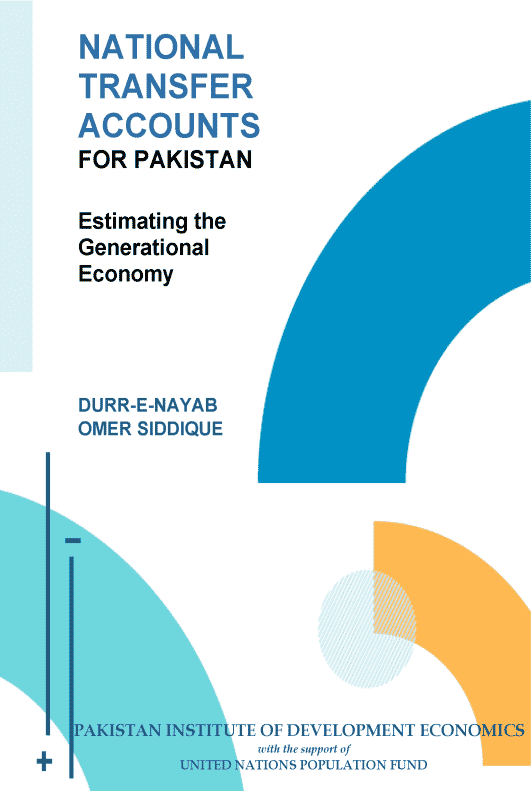
Pakistan Institute of Development Economics
- Home
Our Portals
MenuMenuMenuMenuMenuMenuMenu - ResearchMenuMenuMenuMenuMenuMenuMenu
- Discourse
- The PDR
- Our Researchers
- Academics
- Degree Verification
- Thesis Portal
- Our Portals
National Transfer Accounts for PakistanEstimating the Generational Economy for Pakistan
There is much talk of reaping the demographic dividend in Pakistan, but no verifiable evidence is available on its magnitude. To benefit from the demographic transition underway in the country, the policymakers must be aware of the macroeconomic implications of changes in the age-structure changes taking place. To reap the full benefits of this opportunity, public allocations should be made in such a way that it brings home the dividends provided by the peculiar demographic scenario presented by the fertility transition taking place in the country. Albeit slowly, fertility rates are lowering in the country leading to an increased proportion of the population in the working-age group, thus, bringing the dependency rates down. The National Transfer Accounts (NTA) can fill this gap by quantifying the wealth flows taking place in a population through an improved understanding of the generational economy. Adopting NTA at the national level is recognition of how population growth and changing age structure can influence economic growth, public finances, and other related aspects of the macroeconomy. The NTA helps to construct accounts that measure how people at each age produce, consume, and share resources, and save for the future, at both private and public levels. The account complements the UN System of National Accounts (UNSNA), demographic data, and various important economic indicators



